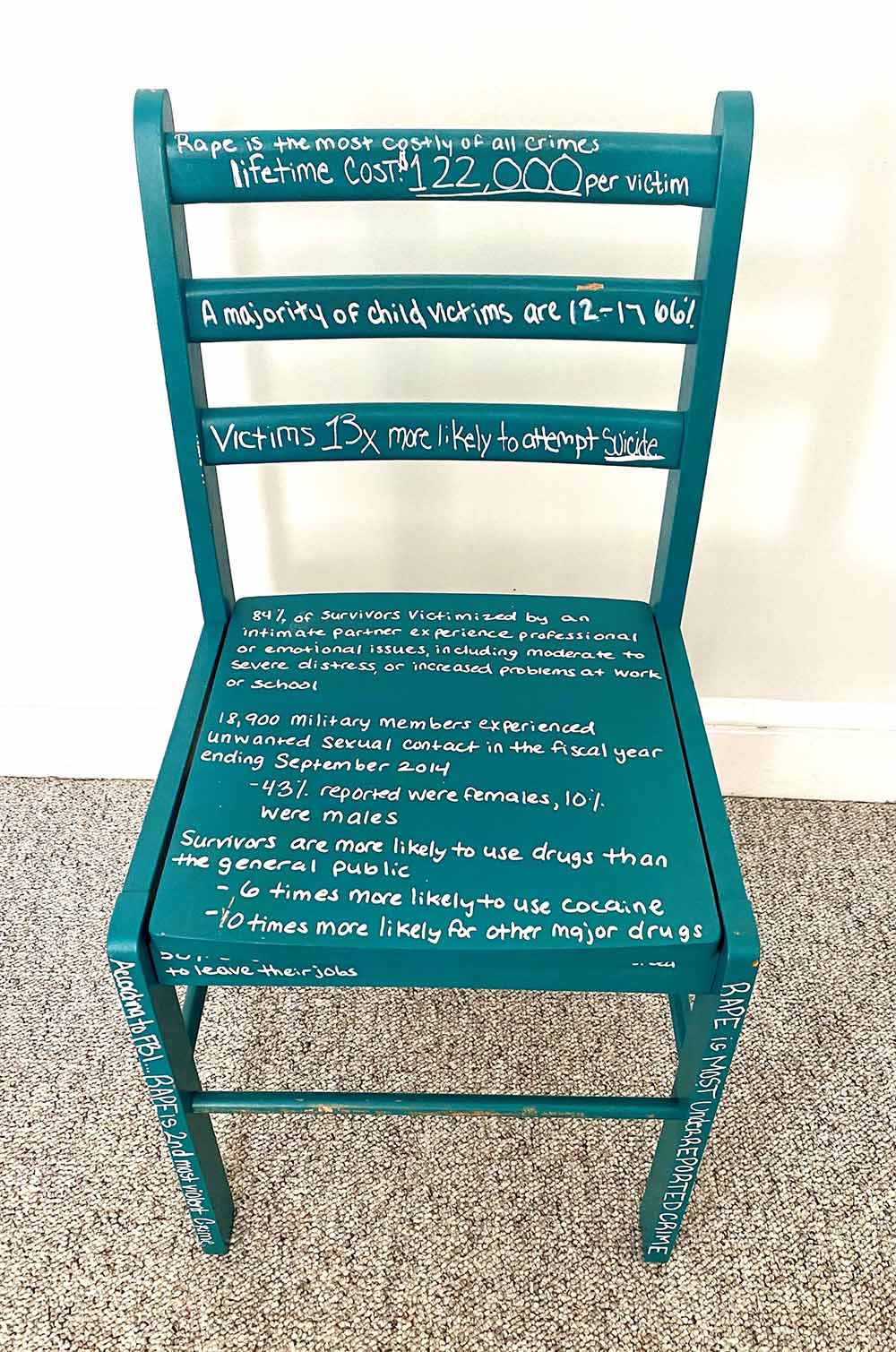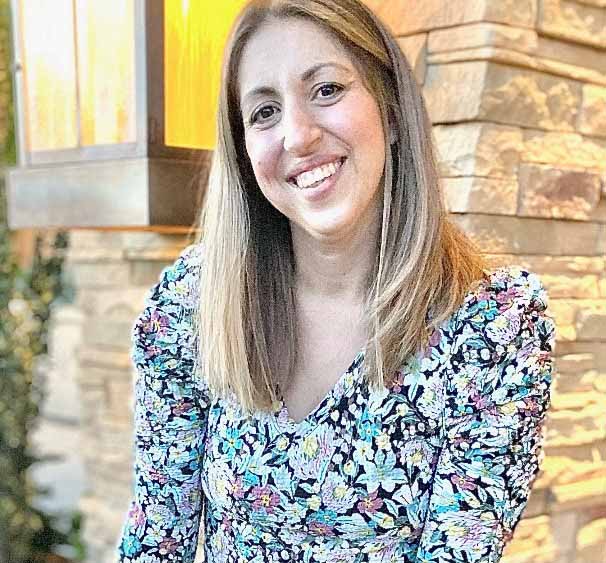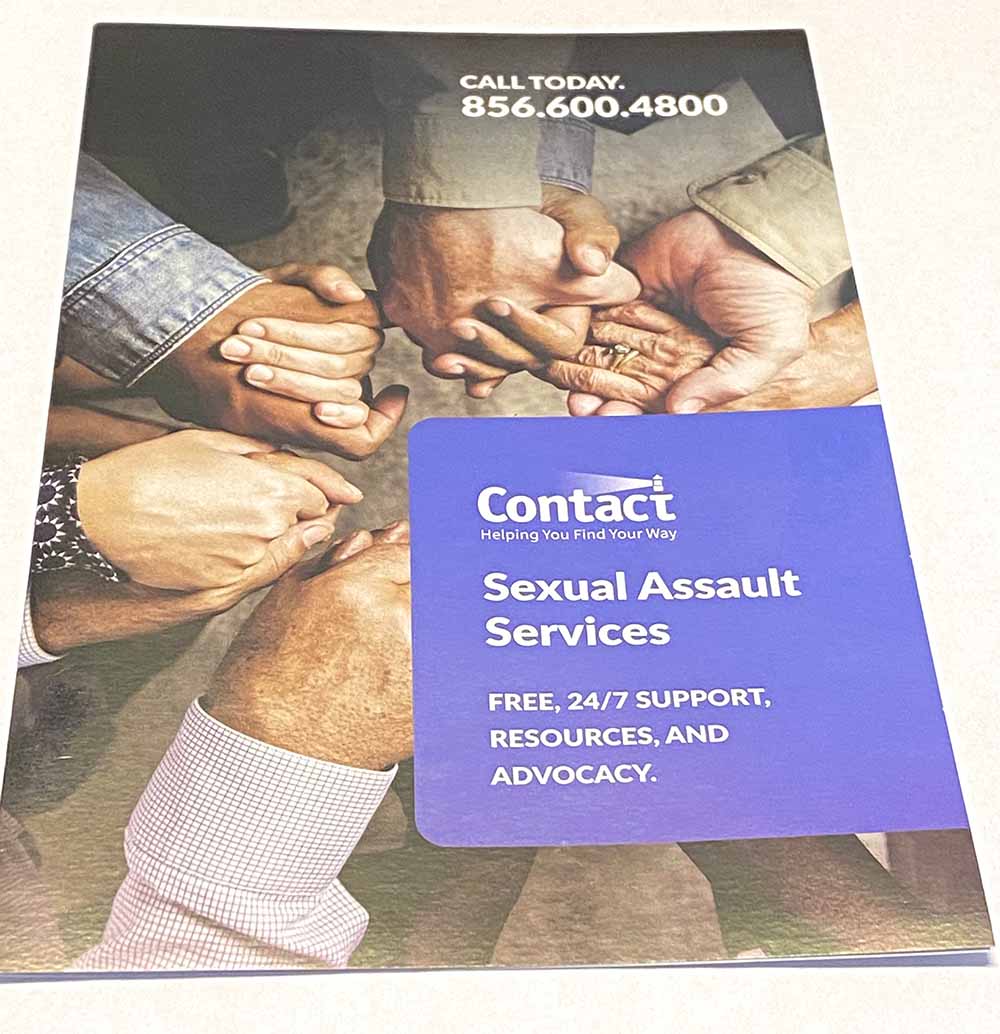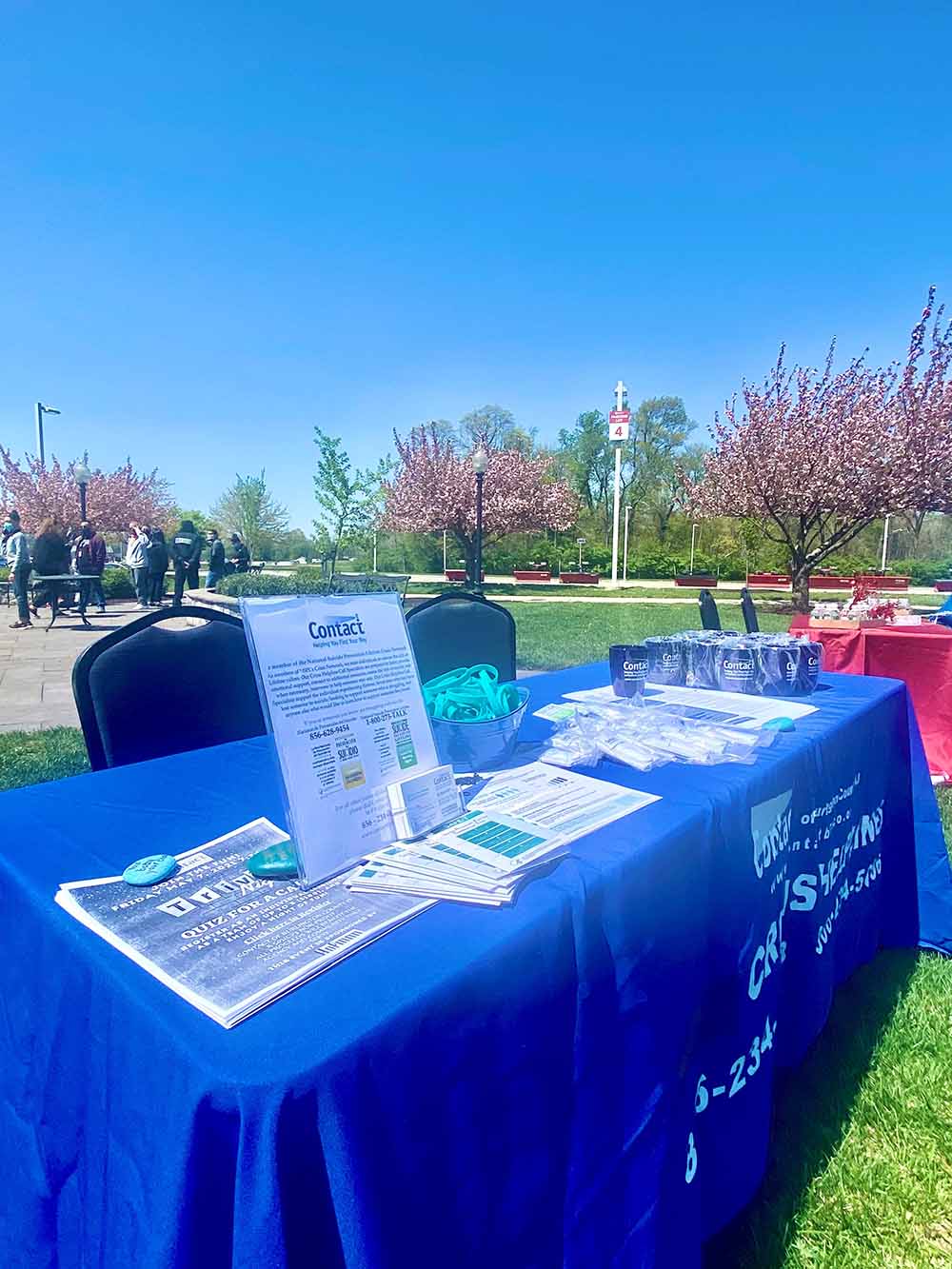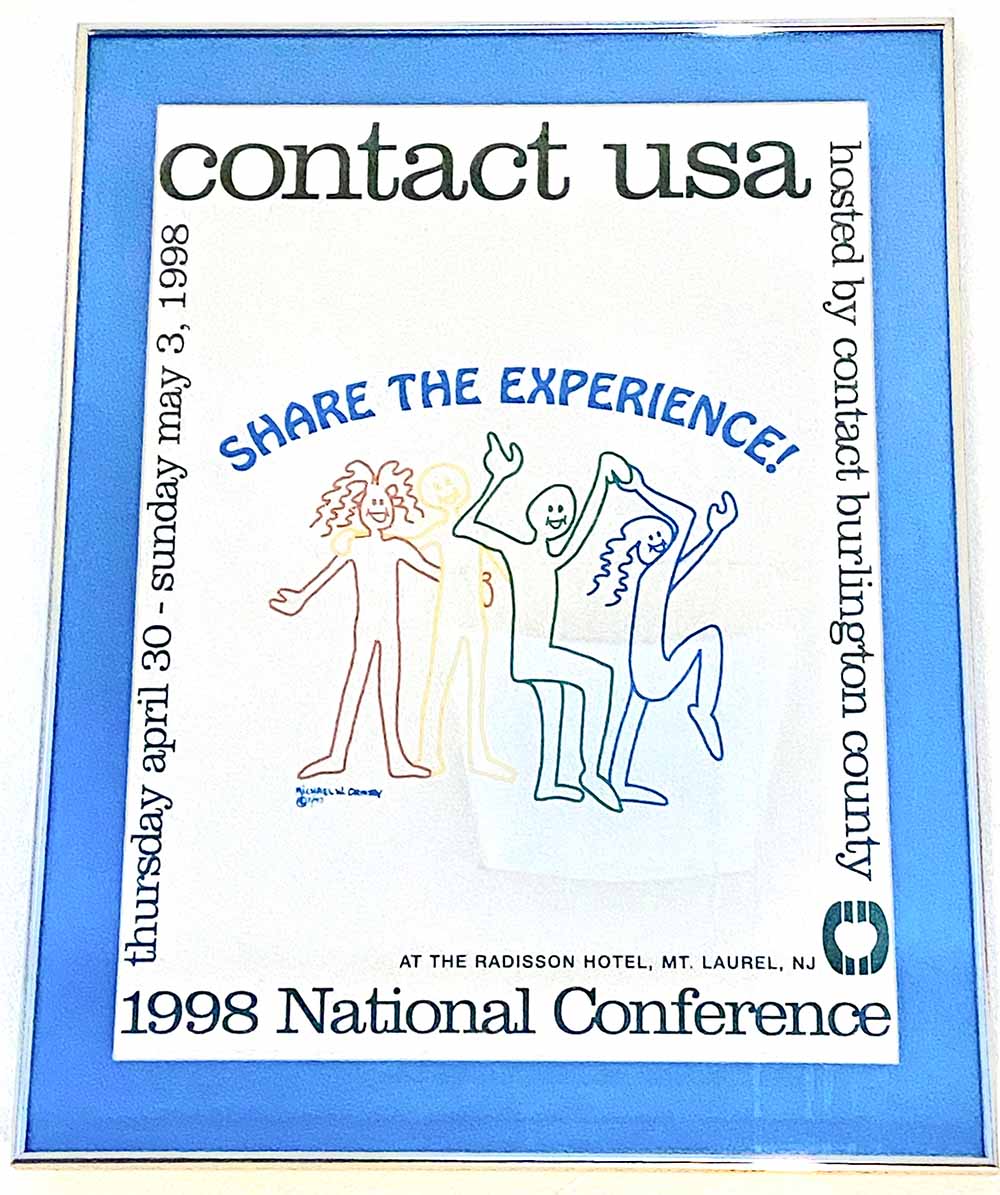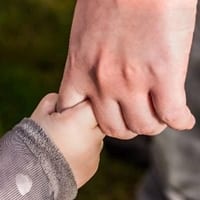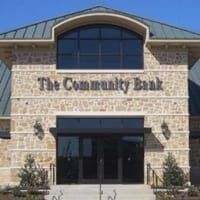Contact of Burlington County
Two Helplines Provide a Steady Lifeline for this New Jersey Community
Contact of Burlington is always there for the most vulnerable
Jump on a Zoom call with Jillian Allen and the first thing you’re likely to notice is her calm, kind and humble, humorous demeanor. As Executive Director of Contact of Burlington County, she oversees both a confidential Crisis Helpline and a Sexual Assault Services Program offering counseling and advocacy assistance to survivors and their loved ones. She assumed that position in June of 2020, right at the start of the COVID crisis, when the former Director Theresa Tobey retired after 20+ years of service. Jillian had previously served as program director of the non-profit’s Sexual Assault Services (SAS) Program for four years.
The second thing you notice about Jillian is how passionately she cares about Contact of Burlington County’s work training volunteers, raising awareness and offering emotional support and counseling services to anyone in the community, at any time. The Crisis Helpline is accredited by the International Council for Helplines, a member of the National Suicide Prevention Lifeline Network, and the all-volunteer staff provides a warm, non-judgmental listening ear that allows callers to talk through their problems, including thoughts of suicide or self harm. The SAS line connects callers with Confidential Sexual Violence Advocates who receive extensive training recognized by the state of New Jersey, and respond as part of Burlington County’s Sexual Assault Response Team. These volunteers offer support ranging from active listening and reporting options on the phone to meeting callers and accompanying them to a forensic exam, or to the authorities if they choose to file a report. Contact also employs a Licensed Clinical Social Worker who provides short term counseling to individuals affected by sexual violence/ their loved ones, and make referrals to local mental health providers who are pre-screened for experience in dealing with sexual assault trauma.
Jillian graciously agreed to patiently explain the complexities of her work, how she became involved, and how she guides her volunteers to equip them to help in the most effective ways.
Tell us about your background and what led you to this kind of work.
I got my master’s degree and license in social work, and I had actually planned to do the clinical path. I was studying trauma and its impact on individuals and the brain. That was, you know, my world. And then, when I began to do the clinical therapy piece, I saw this major disconnect that I knew was there, but it was glaring when I started working in therapy. The disconnect of systems and services. I felt like I was always meeting the person when it was too late. I wanted to reach the people in other agencies and systems to help them learn more about how to support people who were going through any type of trauma. And that was what brought me to the sexual assault services program, because I identified a specific need there that I really wanted to help with. And the more time I spent there the more I saw a broader disconnect between people in need and the places in the community that could help. We really needed to come together. And that was really what drew me to this type of organization and work.
What is the training that the volunteers on your Crisis Helpline receive?
They all have to complete Contact’s extensive call specialist training prior to working with what we call our senior workers—who are also volunteers but have more experience and are capable of supporting their learning. After they do all that, the volunteers do go onto the phones and work independently. They’re trained to do active listening. And anytime a call comes in from the crisis helpline, they have to ask, are you experiencing thoughts of suicide? Do you feel like harming yourself? There’s a protocol for that with all callers, assessing for specific things. They have a suicide survey that they have to complete that does help them to assess risk. And then that is what signals all the rest of the protocols for interventions.
How does that differ from the Sexual Assault Services line?
With the Crisis Helpline, the primary purpose is phone support and intervention if an individual is at imminent risk of suicide. The main difference is that beyond that, if the person chooses, the SAS line, they offer 24/7/365 phone support, counseling, or they may say “I do want to tell the authorities,” or “I want to get an exam just to make sure I’m okay.” And one of our sexual violence advocates will meet and accompany them. We also have a part-time licensed clinical social worker who does counseling here, and they are specifically trained to be able to provide that service. We are a short term counseling option intended for crisis purposes, so between eight and ten sessions, but those are completely free and callers do not need any type of documentation or insurance or anything like that. It’s completely confidential. And after that we would refer them to those other counselors in the community who have specific training dealing with sexual assault trauma and the immediate crises of violence.
Clearly your work running Contact Burlington is more than just a job, it’s a calling. How do you approach your work, and what does it mean to you?
It means a ton. The number one thing I do to approach my work, and I tell this to every person that we ever hire, is that this work is 100% about remembering why you came here. What is it that led you to apply for this job? So, in other words, what’s your “why?” And you have to dig deep for that. And you have to remember that reason, because this type of work in a nonprofit is run by private donations, or very restricted funds that are extremely appreciated, but come with very specific guidelines. You know, you can begin to feel lost in thinking you’re not getting to do what you thought you were going to do, or, there’s never gonna be enough money to do the things you know that people need. So, what is your “why?” And when you know that, that will guide every conversation and every bit of extra work or extra hours that you put in, because you know that you’re doing it because you came here with an understanding of something that was very important to you, and this person calling you is calling you for their “why”, or their very important thing. That’s really how I get through all of it. Like that to me is what takes my brain from “Oh my gosh! Oh my gosh! Oh my gosh!” It’s really that simple. And you’ve got to be thorough and kind and not assume that you know how to tell their story. If you can do that, you can do this work.
And saying you don’t know, isn’t a bad thing. I would much rather us be the place that said, “I’m really not sure; let me look into that, and I’ll get back to you” then to say we know everything and we’re the best because that’s never going to be true. We’re going to have things that we need to look more into and that’s okay. And then that removes all the fear that a lot of people have in taking on this type of work too, because you’re never going to be perfect at it. Every person’s an individual that comes here, or who calls here.
What is your “Why?”
I am a survivor of sexual violence. I also have had clinical experience supporting people with thoughts of suicide and lost loved ones who have taken their life by suicide, and I’ve seen the response to it. With trauma, it may not even be the initial harm that created distress.. It was the response of the family member, or the system, that they felt failed them. Those are the types of things that can lead people to feel so alone or so isolated. They call a place like us because we don’t typically hear from people who have a ton of support. We hear from the people who really don’t have anybody, or they feel that they don’t because of the things that are happening around them. And they feel like it’s spiraling out of control and they can’t tell anybody else. That’s not always the case, but it’s a majority of it. I just want people to know that someone will answer the phone, and I want them to feel a little bit better than I did, or a little bit better than people who feel like there’s no other options or no way out. I may not be able to give that to them. Maybe that’s not a realistic expectation, but I may be able to drive our ability to be there for them in that moment, or to do a little bit extra. It helps to remember that you want to make the world a safer place for survivors and people who feel like there’s no other way out but to harm themselves. That is really how I would answer your question truthfully.
You’ve said that much if not most of Contact Burlington County’s funding comes from small donations from individual contributors, and many of those come from volunteer families. What does it mean for you to receive support from Impact Deposits Corp.?
Our Crisis Helpline presently only has one grant annually that covers just 5% of that program’s costs. Although our SAS Program receives government grants that cover the program, we are responsible for raising unrestricted dollars to cover any other needs. Receiving this money does so much for us, because of how much work it takes to ensure the giving from the community can sustain both programs that are so needed. So it was awesome to know that we receive the kind of support that Impact Deposits gives us. People may never know what that does for nonprofits, especially small places like ours. It eliminates endless extra hours of fundraising. That is, it’s a huge welcome help and very much appreciated.
.

